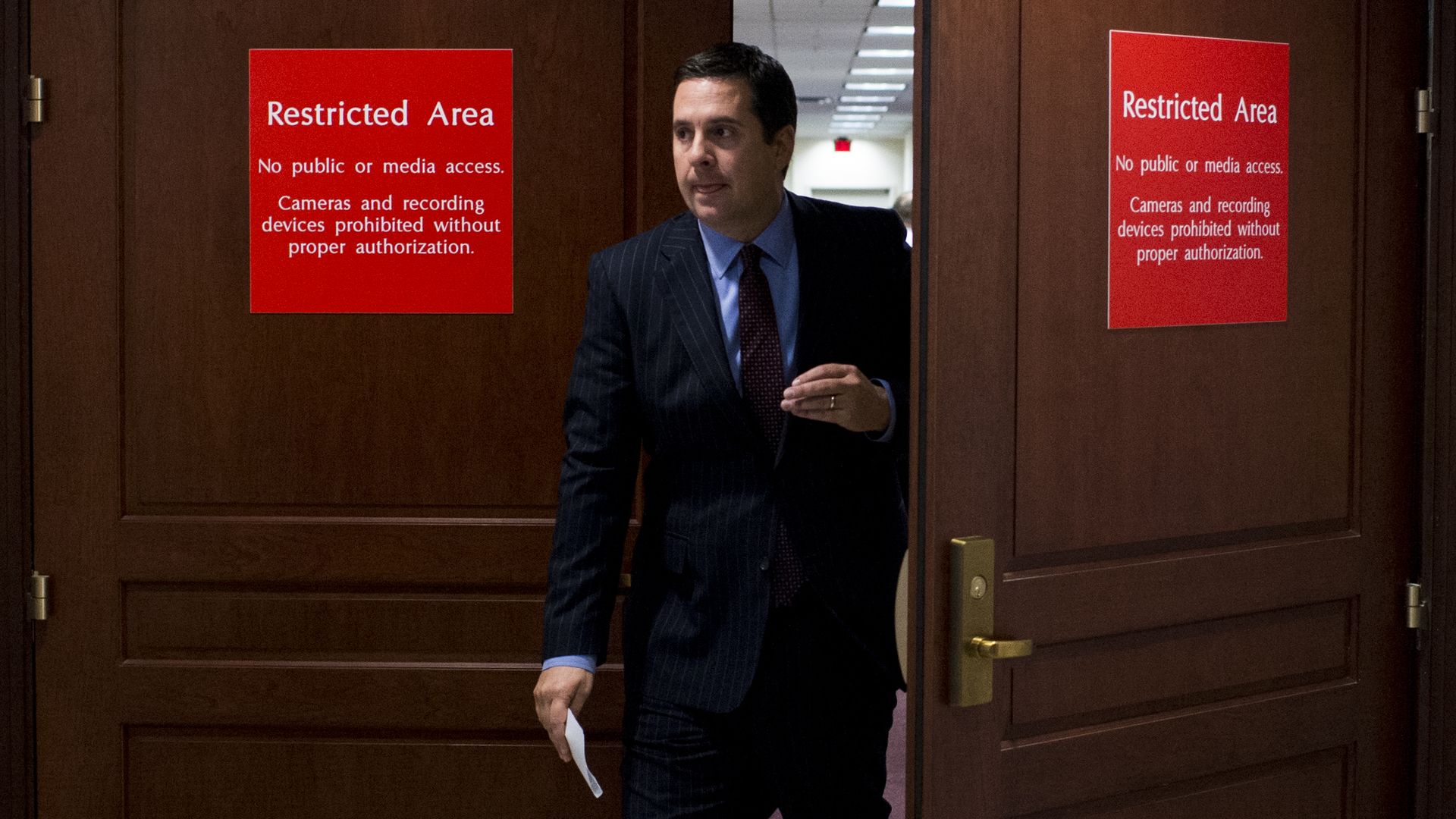
Rep. Devin Nunes’s infamous memo — the document numerous House Republicans claimed would demonstrate fundamental anti-Trump corruption at the FBI — was released early Friday afternoon. The entire thing is three and a half pages and only takes a few minutes to read closely and carefully.
After doing that, there is only one conclusion a fair reader could draw: There is absolutely nothing here.
There is no proof in the memo that the FBI is biased against Trump, no proof of abuse of surveillance powers by the FBI, and no proof that the investigation into the Trump campaign’s ties to Russia is fundamentally flawed. The memo is a piece of partisan spin, and not a particularly compelling one at that.
Republicans who claimed it was anything else have been egregiously misrepresenting what the memo actually says.
The memo does not support its core claim
The memo begins by making a grandiose claim: The FBI’s use of surveillance power under the Foreign Intelligence Surveillance Act (FISA) during the 2016 campaign was “a troubling breakdown of legal processes established to protect the American people from abuses related to the FISA process.”
The only example the memo cites is an October 21, 2016, request by the Department of Justice and FBI for permission under FISA powers to snoop on former Trump campaign foreign policy adviser Carter Page. The key word there is former: Page had left the Trump campaign at least a month before the application. That’s the first red flag that there’s nothing here, as an FBI campaign to undermine Trump’s campaign would almost certainly involve targeting someone who was actually working on it.
The Nunes memo goes on to allege that the Page FISA application, which was ultimately approved by a judge, was fundamentally flawed. The problem, it claims, is that the application depended on “the Steele dossier,” a document put together by former British spy Christopher Steele alleging deep ties between Trump and Russia (it’s the source of, among other things, the “pee tape” rumors about Trump and Moscow prostitutes).
The Steele dossier, Nunes alleges, “formed an essential part of the Carter Page application,” and he goes on to suggest that the application omitted several key facts about the dossier that undermine its credibility: most notably that the dossier was partially funded by the Democratic National Committee and that Steele himself has expressed his opposition to Donald Trump becoming president.
We can’t check whether these claims are true without seeing the actual FISA application. It could be that the Steele dossier wasn’t very important to the Page application, or that the FBI actually did disclose Steele’s political connections. (This is apparently the argument in a Democratic counter-memo, which was not published because Republicans voted to keep it secret.)
The Nunes memo, in other words, could be full of lies. We just can’t tell based on reading it.
But let’s assume that its core factual assertions — that the FBI heavily relied on the Steele dossier, and that it didn’t mention his funding sources in the FISA warrant — are true. So what?
The FBI relies on sources with axes to grind all the time. People typically don’t go to the authorities with damaging information about people they like. The key question in an application like this isn’t whether the source liked the target; it’s whether the specific claims they’re making are credible.
The memo doesn’t make that case.
“What matters is whether the Steele specific findings *actually material to the application* were unverified,” Julian Sanchez, an expert on surveillance at the libertarian Cato Institute, wrote after reading the memo. “Memo doesn’t seem to make that claim.”

No comments:
Post a Comment